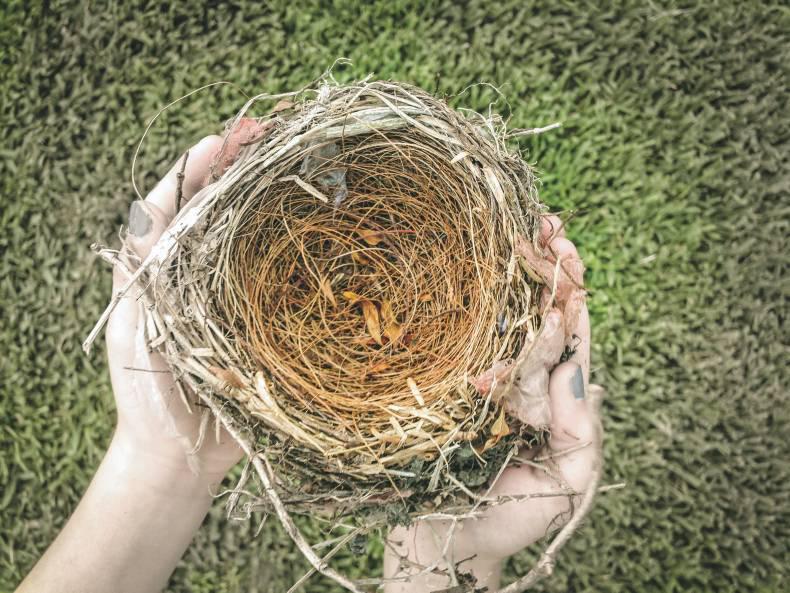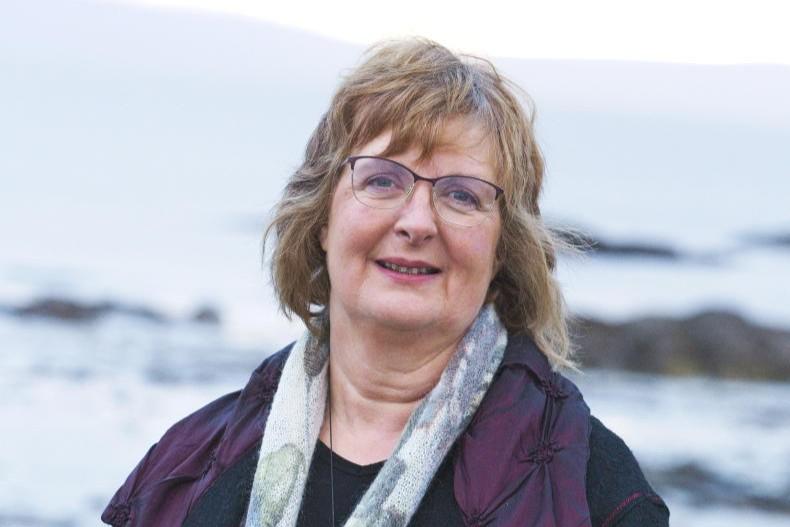Children leaving home is a transition point for everyone in the family,” says Dr Roisin Joyce, a clinical psychologist based at EBTC (Evidence-Based Therapy Centre) in Galway city.
“As with all transitions in life, it is a point when we are more vulnerable to emotional distress as we adapt to our changing circumstances.
“There can be a big gap in parents’ lives, particularly if the children were a central focus. Having invested a lot of time and emotional energy in your children, feelings of sadness and loss are common when they move away. While sadness and loss are very common feelings, guilt and regret can also be present. Parents may feel that they haven’t had enough time with their children and now they are grown up and moving away.”
Roisin provides psychological therapy to people with a range of difficulties, including anxiety and depression.
“A number of people have spoken about the significance of their children leaving home during their therapy. This is particularly true where children have been the main focus of a parent’s life. It is often a time when parents reflect on their life and consider the next chapter. This can lead to feelings of sadness and loss but also to a renewed commitment to themselves and personal growth.
For most parents, it’s a case of mixed feelings.
“Along with negative feelings, there can be positive feelings, a sense of having done a good job, of gaining independence and an opportunity to focus on the next chapter of their lives.”
It is important to remember, she adds, that the feelings of sadness and loss that occur when a child leaves home are a validation of the relationship a parent has with the child.
“That can be seen as a positive because it communicates the love you have for the person and how much you value the relationship. In fact, those very feelings of sadness and loneliness can motivate you to maintain your connection with them and work on the next chapter of your relationship.”
TIPS
1. Acknowledge that you are in a point of transition. Don’t try to gloss over it or push it away. Accept that it is a time of change and that this can cause you to feel distressed. Realise that lots of people feel this way and that it will pass. Be compassionate towards yourself. With time, you will adapt to your changing circumstances.2. Look to old interests or develop new ones. Do things you used to enjoy or take up new hobbies that you have wanted to do but never had the time for. Look on it as a new chapter in your life and ask yourself: “What is this next chapter going to look like?”3. Start thinking about the future and consider how the relationship with your child is going to transform from a parent-child relationship to an adult-adult one. Consider the opportunities that this will bring. 4. Talk about it with your partner and friends. This will help normalise these common feelings and see them as part of the life cycle. When you realise you are not alone, it really helps. Friends may have been through it and you can see how they have coped. DR CATHERINE LONG
Dublin-based psychologist Dr Catherine Long also encounters empty nest emotions in her work.
As well as mothers questioning their role in life after children leave, she says fathers can experience sadness and guilt around that time too.
“They may regret that they didn’t do more with their children when they were growing up, seeing it as a missed opportunity to connect with their child and children.”
Sadness is the strongest empty nest emotion she comes across.
“Being a parent can be a big part of a person’s identity. When your children leave, it can mean a huge empty space in yourself.”
Relationship issues can surface between the parents when children fly the nest too, she says.
“Often there isn’t a lot of time for each other when children are growing up. When it comes to the empty nest period, some people can be delighted that they are going to have this opportunity to re-kindle their relationship, but, equally, sometimes that connection may have been lost and the relationship may be in trouble.
“Sometimes the problems were there all along and parents pushed them aside or repressed them for the sake of the children, but once the children have left home that bond or glue that’s been keeping them together can start to unravel.”
That said, many couples don’t suffer, she says.
“For many, it’s a positive thing, an opportunity to reinvigorate their relationship or hobbies that they had put aside. I personally know people who would say: ‘Roll on the empty nest.’ Not everybody experiences it as a negative. As I said, part of how you handle it is related to how much of your identity is tied up with being a parent.”
Another factor is how well your children are doing, she says.
“If you see them getting on well and being confident, it’s going to be easier to let go and be able to move on rather than if they are struggling and still need help.”
Tips
1. Think about your relationship with your partner, if you have one, and what needs to happen with it. Should you invest more time in it? Are there problems that you now need to get working on? 2. Acknowledge the feelings such as sadness, loss or guilt, but also work on developing new interests that will give you a sense of purpose.3. Think about how you can build a different relationship with your children, doing things like meeting for coffee or to go shopping or to the theatre or a football match. See it as a different relationship rather than as a loss. Remember, though, that it can take a few years to get to the new adult-to-adult relationship stage.THE ROOM DEBATE
What to do with a now empty room can be a touchy subject. Should it stay exactly as it was, there to be returned to occasionally? Should another sibling be allowed move in or should it become Dad’s man cave or Mum’s new office?
Roisin Joyce says: “We are very territorial as humans, so losing a bedroom can stir up difficult emotions. Talk about this with your children and get all the emotions around it out into the open. That way you can come up with a compromise that everyone agrees with.”
Catherine Long says: “It’s something to be negotiated, certainly in the early years after a child leaves. They might have strong feelings about it. It’s healthy to let go (both parents and now adult child) but it doesn’t have to happen immediately.”
• See www.ebtc.ie
• See www.onehourforme.ie
• A good book on the subject is Celia Dodd’s The Empty Nest: How to survive and stay close to your adult child. CL
Children leaving home is a transition point for everyone in the family,” says Dr Roisin Joyce, a clinical psychologist based at EBTC (Evidence-Based Therapy Centre) in Galway city.
“As with all transitions in life, it is a point when we are more vulnerable to emotional distress as we adapt to our changing circumstances.
“There can be a big gap in parents’ lives, particularly if the children were a central focus. Having invested a lot of time and emotional energy in your children, feelings of sadness and loss are common when they move away. While sadness and loss are very common feelings, guilt and regret can also be present. Parents may feel that they haven’t had enough time with their children and now they are grown up and moving away.”
Roisin provides psychological therapy to people with a range of difficulties, including anxiety and depression.
“A number of people have spoken about the significance of their children leaving home during their therapy. This is particularly true where children have been the main focus of a parent’s life. It is often a time when parents reflect on their life and consider the next chapter. This can lead to feelings of sadness and loss but also to a renewed commitment to themselves and personal growth.
For most parents, it’s a case of mixed feelings.
“Along with negative feelings, there can be positive feelings, a sense of having done a good job, of gaining independence and an opportunity to focus on the next chapter of their lives.”
It is important to remember, she adds, that the feelings of sadness and loss that occur when a child leaves home are a validation of the relationship a parent has with the child.
“That can be seen as a positive because it communicates the love you have for the person and how much you value the relationship. In fact, those very feelings of sadness and loneliness can motivate you to maintain your connection with them and work on the next chapter of your relationship.”
TIPS
1. Acknowledge that you are in a point of transition. Don’t try to gloss over it or push it away. Accept that it is a time of change and that this can cause you to feel distressed. Realise that lots of people feel this way and that it will pass. Be compassionate towards yourself. With time, you will adapt to your changing circumstances.2. Look to old interests or develop new ones. Do things you used to enjoy or take up new hobbies that you have wanted to do but never had the time for. Look on it as a new chapter in your life and ask yourself: “What is this next chapter going to look like?”3. Start thinking about the future and consider how the relationship with your child is going to transform from a parent-child relationship to an adult-adult one. Consider the opportunities that this will bring. 4. Talk about it with your partner and friends. This will help normalise these common feelings and see them as part of the life cycle. When you realise you are not alone, it really helps. Friends may have been through it and you can see how they have coped. DR CATHERINE LONG
Dublin-based psychologist Dr Catherine Long also encounters empty nest emotions in her work.
As well as mothers questioning their role in life after children leave, she says fathers can experience sadness and guilt around that time too.
“They may regret that they didn’t do more with their children when they were growing up, seeing it as a missed opportunity to connect with their child and children.”
Sadness is the strongest empty nest emotion she comes across.
“Being a parent can be a big part of a person’s identity. When your children leave, it can mean a huge empty space in yourself.”
Relationship issues can surface between the parents when children fly the nest too, she says.
“Often there isn’t a lot of time for each other when children are growing up. When it comes to the empty nest period, some people can be delighted that they are going to have this opportunity to re-kindle their relationship, but, equally, sometimes that connection may have been lost and the relationship may be in trouble.
“Sometimes the problems were there all along and parents pushed them aside or repressed them for the sake of the children, but once the children have left home that bond or glue that’s been keeping them together can start to unravel.”
That said, many couples don’t suffer, she says.
“For many, it’s a positive thing, an opportunity to reinvigorate their relationship or hobbies that they had put aside. I personally know people who would say: ‘Roll on the empty nest.’ Not everybody experiences it as a negative. As I said, part of how you handle it is related to how much of your identity is tied up with being a parent.”
Another factor is how well your children are doing, she says.
“If you see them getting on well and being confident, it’s going to be easier to let go and be able to move on rather than if they are struggling and still need help.”
Tips
1. Think about your relationship with your partner, if you have one, and what needs to happen with it. Should you invest more time in it? Are there problems that you now need to get working on? 2. Acknowledge the feelings such as sadness, loss or guilt, but also work on developing new interests that will give you a sense of purpose.3. Think about how you can build a different relationship with your children, doing things like meeting for coffee or to go shopping or to the theatre or a football match. See it as a different relationship rather than as a loss. Remember, though, that it can take a few years to get to the new adult-to-adult relationship stage.THE ROOM DEBATE
What to do with a now empty room can be a touchy subject. Should it stay exactly as it was, there to be returned to occasionally? Should another sibling be allowed move in or should it become Dad’s man cave or Mum’s new office?
Roisin Joyce says: “We are very territorial as humans, so losing a bedroom can stir up difficult emotions. Talk about this with your children and get all the emotions around it out into the open. That way you can come up with a compromise that everyone agrees with.”
Catherine Long says: “It’s something to be negotiated, certainly in the early years after a child leaves. They might have strong feelings about it. It’s healthy to let go (both parents and now adult child) but it doesn’t have to happen immediately.”
• See www.ebtc.ie
• See www.onehourforme.ie
• A good book on the subject is Celia Dodd’s The Empty Nest: How to survive and stay close to your adult child. CL









SHARING OPTIONS